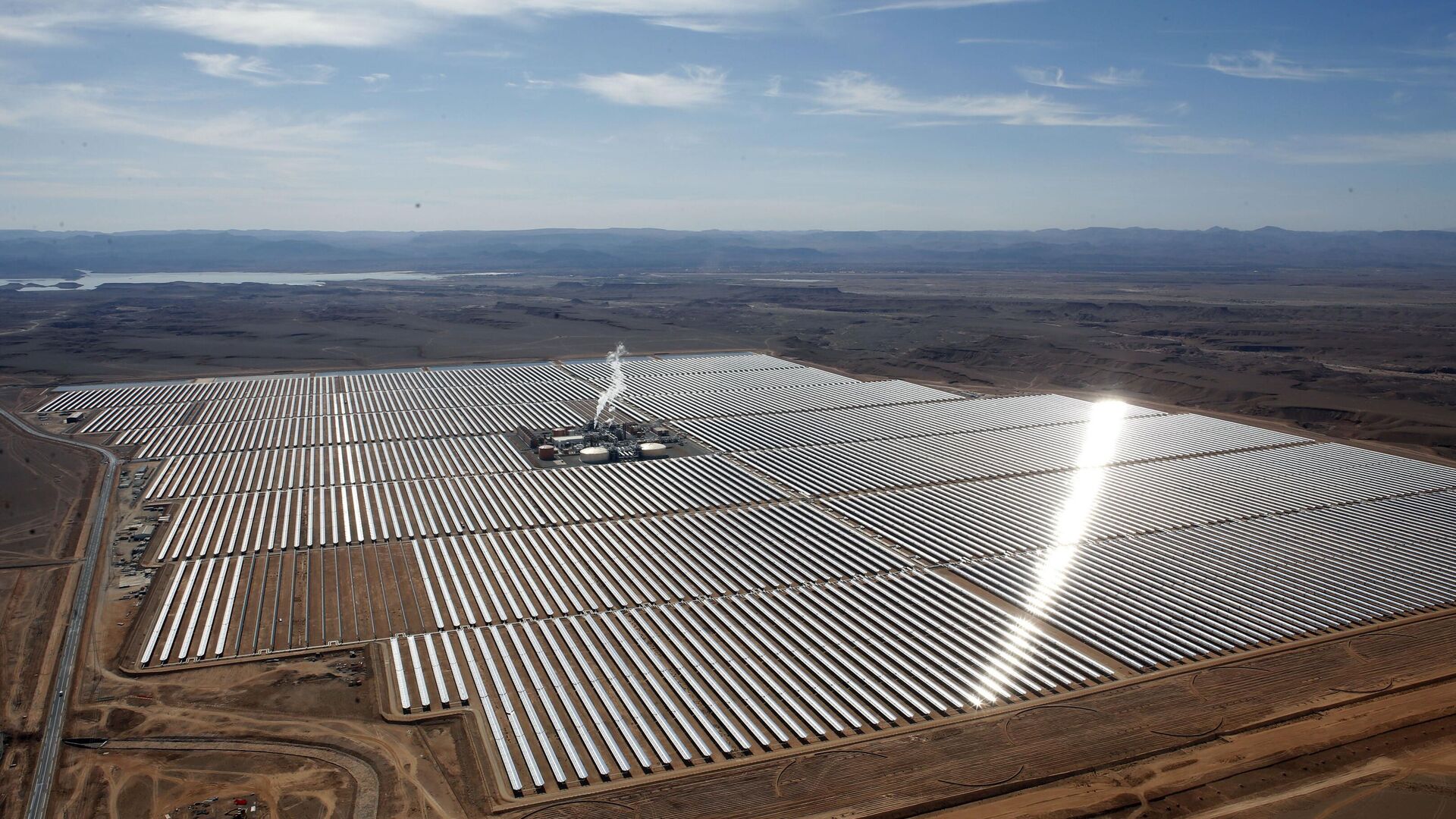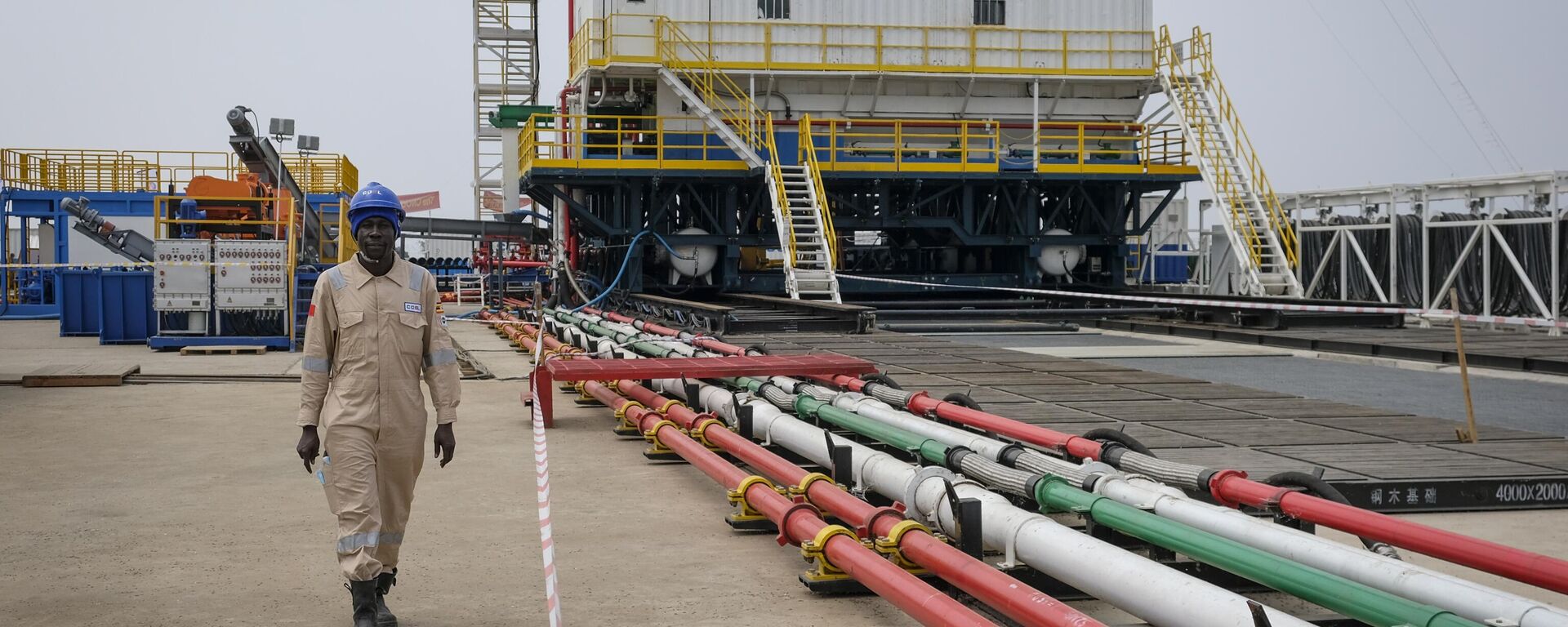https://en.sputniknews.africa/20230525/solar-investment-outshines-oil-iea-says-1059462048.html
Solar Investment Outshines Oil, IEA Says
Solar Investment Outshines Oil, IEA Says
Sputnik Africa
Investment in solar power is expected to overtake oil for the first time this year as clean energy spending outpaces that for fossil fuels, the IEA said in a report on Thursday.
2023-05-25T08:33+0200
2023-05-25T08:33+0200
2023-05-25T08:33+0200
international energy agency (iea)
renewable energy
energy crisis
fossil fuels
https://cdn1.img.sputniknews.africa/img/07e7/05/19/1059462374_0:114:3237:1935_1920x0_80_0_0_c0318e440f34c945e9c0a8a039bcea19.jpg
While that is a welcome development, the International Energy Agency warned that investment in fossil fuels is rising when it should be falling fast to achieve net zero emissions by 2050.Annual investment in clean energy is expected to have risen by 24 percent from 2021 to more than $1.7 trillion in 2023, according to the IEA. The gain for fossil fuels was 15 percent over the same period.Investment in clean energy and fossil fuels was equal only five years ago. But a combination of factors, in particular high oil and gas prices and a worry about supplies, has seen spending on renewables surge ahead.The IEA expects investment in solar power, essentially photovoltaic panels, to hit $380 billion this year, while investment in oil exploration and extraction should come in at $370 billion.The low price of solar power generation will help propel decarbonization efforts as electric car adoption gathers pace.But the rebound in oil and gas investment, which is expected to return to 2019 levels this year, puts the industry further away from the IEA's 2050 net zero trajectory.The IEA says overall 2023 fossil fuel investment is expected to be more than double the amount the sector should be spending in 2030. For coal, it cold hit six times the amount.The IEA also noted that clean energy investment was concentrated in advanced nations and China, while the biggest increases in fossil fuel investment are in Middle Eastern nations.The IEA also found that major energy companies, for the most part, are not putting considerable funds into the transition to green energy.Just five percent of their cash flow last year went to low-carbon and renewable energies or carbon capture projects, only about a quarter of the amount that was paid out overall to shareholders.
https://en.sputniknews.africa/20230511/no-turning-back-east-africa-wont-backtrack-on-oil-projects-1059177737.html
Sputnik Africa
feedback@sputniknews.com
+74956456601
MIA „Rossiya Segodnya“
2023
Agence France Presse (AFP)
Agence France Presse (AFP)
News
en_EN
Sputnik Africa
feedback@sputniknews.com
+74956456601
MIA „Rossiya Segodnya“
Sputnik Africa
feedback@sputniknews.com
+74956456601
MIA „Rossiya Segodnya“
Agence France Presse (AFP)
international energy agency (iea), renewable energy , energy crisis, fossil fuels
international energy agency (iea), renewable energy , energy crisis, fossil fuels
Solar Investment Outshines Oil, IEA Says
Agence France Presse (AFP)
Investment in solar power is expected to overtake oil for the first time this year as clean energy spending outpaces that for fossil fuels, the IEA said in a report on Thursday.
While that is a welcome development, the International Energy Agency warned that investment in fossil fuels is rising when it should be falling fast to achieve net zero emissions by 2050.
"Clean energy is moving fast - faster than many people realize," IEA Executive Director Fatih Birol said in a statement accompanying the release of the agency's latest report on energy investment. "This is clear in the investment trends, where clean technologies are pulling away from fossil fuels."
Annual investment in clean energy is expected to have risen by 24 percent from 2021 to more than $1.7 trillion in 2023, according to the IEA. The gain for fossil fuels was 15 percent over the same period.
Investment in clean energy and fossil fuels was equal only five years ago. But a combination of factors, in particular
high oil and gas prices and a worry about supplies, has seen spending on renewables surge ahead.
"One shining example is investment in solar, which is set to overtake the amount of investment going into oil production for the first time," Birol said.
The IEA expects investment in solar power, essentially photovoltaic panels, to hit $380 billion this year, while investment in oil exploration and extraction should come in at $370 billion.
"This crowns solar as a true energy superpower," said Dave Jones, head of data insights at the energy think tank Ember.
The low price of solar power generation will help propel decarbonization efforts as electric car adoption
gathers pace.
But the rebound in oil and gas investment, which is expected to return to 2019 levels this year, puts the industry further away from the IEA's 2050 net zero trajectory.
The IEA says overall 2023
fossil fuel investment is expected to be more than double the amount the sector should be spending in 2030. For coal, it cold hit six times the amount.
The IEA also noted that clean energy investment was concentrated in advanced nations and China, while the biggest increases in fossil fuel investment are in Middle Eastern nations.
"The irony remains that some of the sunniest places in the world have the lowest levels of solar investment, and this is a problem that needs attention," said Jones.
The IEA also found that major energy companies, for the most part, are not putting considerable funds into the transition to green energy.
Just five percent of their cash flow last year went to low-carbon and renewable energies or carbon capture projects, only about a quarter of the amount that was paid out overall to shareholders.


